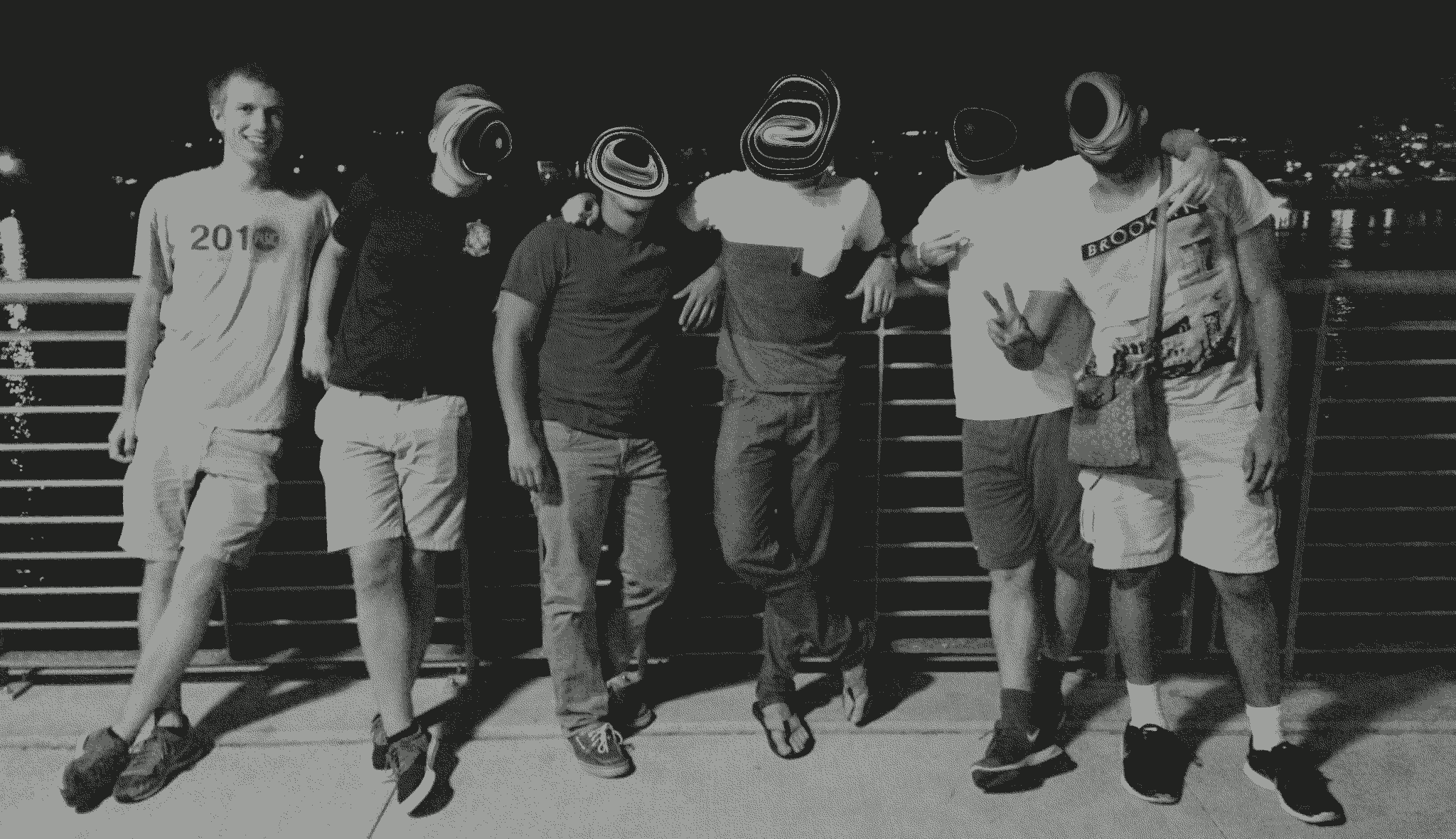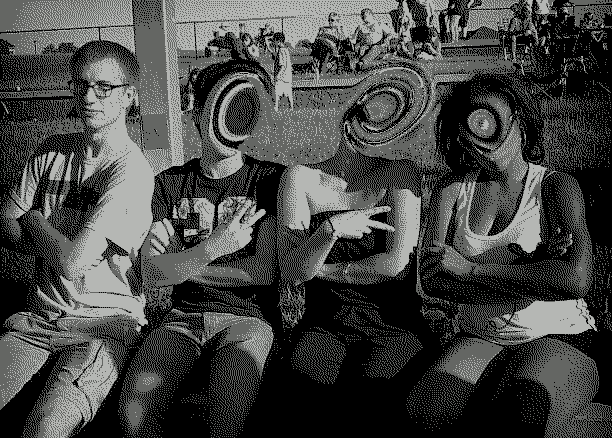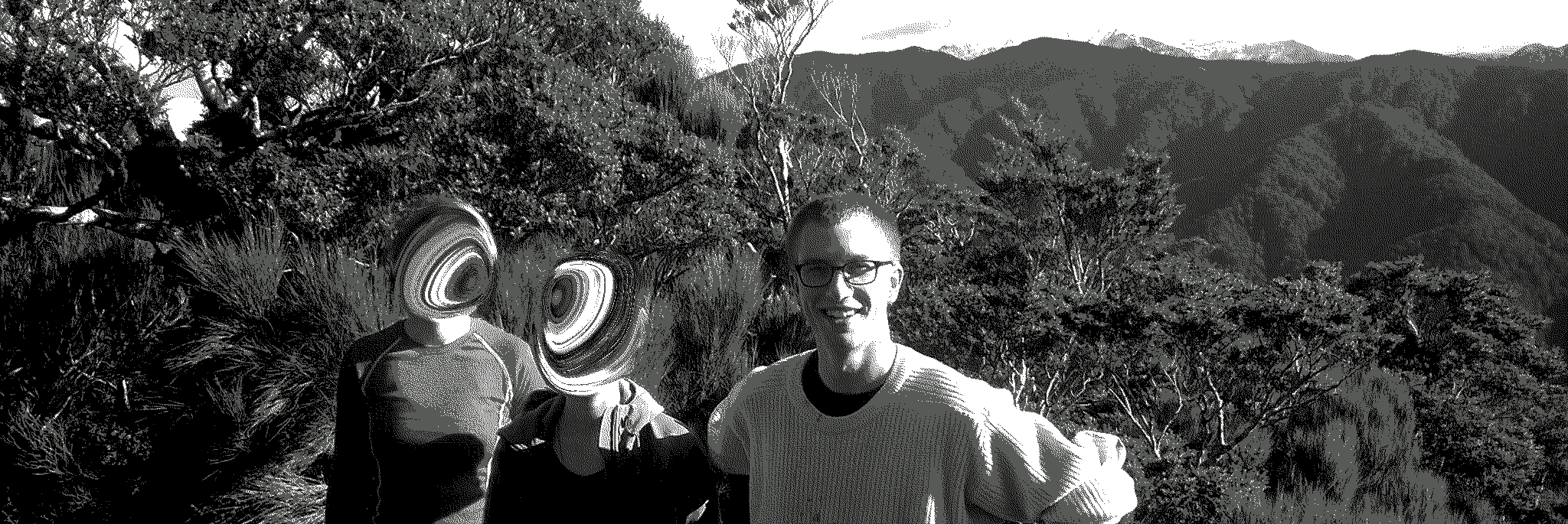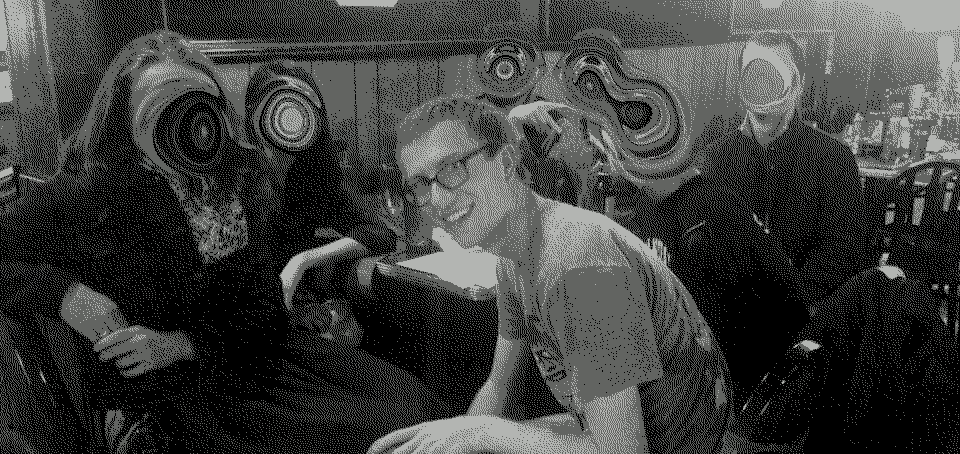Leaving Facebook
Why
Although there have been plenty of fun moments on the platform, and meaningful, valuable interactions, the truth is that I’ve spent most of my time scrolling, searching, looking for something that was never there. When I look back, my memory of Facebook is primarily connected with a deep social anxiety. The attention-grabbing notifications. The rollercoaster of self-worth. Every minute without a “like” was a failure. Every comment was a triumph. And even as I matured, those core feelings have never really left me.

A photo of me at a bowling alley.
Like many people, it took me a while to realize that the News Feed was not really a “public square.” My engagement with friends on the platform was governed by the whims of an algorithm that cared little for my health or the health of my relationships. Notifications did not signal authentic interactions, but rather served to keep me on the website. Every day, without my knowing it, the technology took advantage of my underlying psychology, using sophisticated, calculated tricks to hold my attention and show me more ads.

A photo of someone throwing water at me with a bucket.
Many of you will be familiar with the saying that “If you aren’t paying for the product, you are the product.” In The Social Dilemma,1 a documentary film about social media, Jaron Lanier puts a finer point on it:
It’s the gradual, slight, imperceptible change in your own behavior and perception that is the product.
Who would I be if I had never joined Facebook? Would I be different? Definitely! But I don’t really know how, or in what way. So many of my deepest relationships have lived, at least in part, on a website whose goal is not to enrich my life, but rather to enrich itself. Every interaction I have had with friends and family on that platform is tainted by the fact that our connection was facilitated for the purpose of selling changes in our behavior to the highest bidder. For over a decade, almost all of my interpersonal communication was enabled and financed by persuasive technology and growth hacking. (This is surveillance capitalism, and it sucks.)

A group photo of me with five other people. Faces have been obscured.
Still, leaving isn’t easy. Even though my use of Facebook has waned in various ways over the years, it still functions as a sort of rolodex, and as an archive of good times. When I first started thinking about leaving, a few thoughts kept pulling me back:
- What if I want to talk to [person I haven’t spoken to in 10 years]?
- How will I share about my life?
- How will I look back at all those good memories and photos that are only on Facebook?
…basically: “What if I need it later?”
Facebook is a pathway to my past, with an (honestly) pretty good user interface, and it is hard to give up on that. This isn’t my first time trying to leave. But making friends as an adult is hard enough as it is. I don’t need these companies to get involved in my social life by modifying my behavior - even modifying it by 0.01%. I’ll pass on leaving my self-esteem to the whims of their moneymaking algorithms. From here on, where I can, I want to engage as authentically as possible. I’m going to set my own boundaries. In so many ways, and for so many reasons, Facebook just isn’t cutting it. That’s it - I’m out.
How
Since Facebook is so ingrained in my life, even after months of declining use, extricating it has been no easy task. I could quit the platform with no notice or preparation - cold turkey, like a couple of my closest friends - but I still feared losing touch with people who I only am connected with on Facebook, or losing track of the photos and memories that made me love it so much in the first place. As such, my goal is to replace all of the tools Facebook provides with my own, piece by piece.

A photo of me with three other people. Inexplicably, I chose to face my chest away from the camera. Faces have been obscured.
Initially, when I was first thinking about the ways I engage with the platform, I ran into a post by my acquaintance (and Facebook friend) Sahar Massachi called How I use Facebook. Since Sahar used to be an engineer on Facebook’s Civic team, I was intrigued and I followed a few of his suggestions:
- I told Facebook that I didn’t want to see ads anymore, over and over again, until I didn’t see as many ads2
- I unliked all of my liked pages and only followed a few of them that were especially important to me
- I left most of my groups
These changes were okay, but they didn’t release me from my core hang-ups with the platform. After another hour-long doom scroll on my phone, I deleted the mobile app. I had done this numerous times before, but it never stuck. I would be going to an event, or want to post a photo while out and about, and end up re-installing the app. Or I would just start opening up the mobile site in a browser.3
In the days of the pandemic, however, that was not a problem, and this time it worked. I’ve made it longer than ever before without using the mobile app, and I haven’t actually found that I need the platform at all. Now is my best chance to head off on my own - out into the unknown, a Facebook-less social world.
Here’s how I’ve replaced Facebook:
| Facebook Feature | My Replacement |
|---|---|
| Profile page | This website |
| Sharing updates and opinions | Sending out a quarterly newletter and posting on this blog |
| Sharing memes | Check it out |
| Keeping up with the news | Using an RSS reader4 - just news, no comments section |
| Database of people | Making my own database on Airtable5 |
| Sharing artistic photos, sometimes | (Outdated) VSCO |
| My personal photos6 with friends and family | I originally moved these to Google Photos and a good ‘ol SSD.7 But moving them to Google was a mistake - they are the original surveillance capitlist! They are now housed on private file storage. |
| Hosting Events8 | Email invitations, using my new people database! And maybe an online form for RSVPs |
| Birthdays | Added the most important ones to my calendar, yearly recurring |
| Saved posts and links | I already tend to a vibrant lists ecosystem9 |
| Groups | Most of these are dead, some are stupid meme groups, and while others have no replacement, it’s been a while since I had a meaningful exchange there. |
| My Dad’s Jeopardy Video | Don’t worry, I posted it to Youtube |
Overall, I am finding so far that the sum of these parts is greater than Facebook’s whole, especially considering all of the contextual issues I discussed in the first part of this post. Once I had done all the prep, I also did one final download of all my information, just to be careful, and backed it up on my SSD.

A photo of me with two other people, with mountains visible in the distance. Faces have been obscured.
For another guide on leaving and/or limiting social media, check out this one from the Center for Humane Technology.10 I think it is also worth it to think about securing your Internet use more broadly, not just in terms of social media use. I wrote about secure tools on Fractured Atlas’s blog, and I will be writing more about digital security here on this blog as well.
What’s Next?
I recently told a close friend of mine (via SMS) that I am in the process of leaving Facebook for good. Their response? “This is such a good step.” I also know, however, that this might seem like a “lone-wolf” escape from the social obligations of the modern public square. Do I have a responsibility to shout my opinions - which are completely correct of course (lol) - into the social media void? No. Taking into account the ways my mental and emotional health are affected and the deep damage these systems have done to our society,11 I see no way that Facebook should continue to be part of my life.

A photo of me sitting at a table with six other people. I am turning around to face the camera. Faces are obscured.
That said, I’m not interested in losing personal connections. In fact, thinking about this has highlighted their importance. I’ve never been more conscious of how valuable my real, direct relationships are - even those that have long been dormant. So my plan is to to reach out to each remaining Facebook friend one by one, via Messenger, and:
- Let them know I am leaving the platform
- Explain why I am leaving (with a link to this post and The Social Dilemma)
- Exchange non-social-media contact information
- Share a link to my quarterly newletter
(At some point I’ll set an official date for my Facebook shutdown, leaving plenty of time for folks to respond.)
Just because I am leaving a “social network” does not mean I am done with networks or socialization. And I’m definitely not done with the Internet. One network that I will be joining to start is a cool index of arts and open-source focused personal blogs called a webring. I’m looking forward to learning about other options, too. See you there!

-
The film is headlined by the creators of many of the tools we use every day, from Infinite Scroll to Google Drive to Facebook’s “Like” Button. They articulate many of the ways that these platforms, due to their drive to monetize users and make a profit, cause enormous problems from the individual level all the way up to the global scale. Some of the little dramatizations are over-the-top…you can skip them and still get a lot out of the film. ↩︎
-
For me, this was only on mobile, since I already had News Feed Eradicator running on my desktop. ↩︎
-
I was eventually able to stop the latter behavior after switching the majority of my mobile browsing activity over to Firefox Focus, which does not keep me logged in. ↩︎
-
RSS stands for RDF Site Summary or Really Simple Syndication. We all owe much to the late Aaron Swartz, who helped develop RSS, along with Markdown (the syntax I use to write articles for this site), Creative Commons (the license on which this website’s license is based), and Reddit (well, maybe we aren’t always thanking him for that…). My favorite reader is Feedly, which has a great iOS app, but there are also plenty of free and open-source options. (Apparently Microsoft Outlook also has an RSS reading feature.) You can also receive RSS alerts by email, through a tool like Distill, or set up more complicated stuff like a Zapier integration if you like. nother option is using a web monitoring app. I recommend Distill, which has a web app and browser extensions, and can do its check using your computer rather than on the cloud. One of the most popular apps for this is VisualPing, and it works well, but I prefer Distill’s apps. There are also self-hosted web monitoring solutions available, like Huginn. In any case, the app will email you whenever it detects changes. (Please set the time interval to at least a few days - don’t make a computer use a bunch of energy checking this website every hour when if posts are not so frequent.) ↩︎
-
Airtable provides a bunch of great features that Facebook does not, such as useful categorization and adding in people’s contact information. It is very flexible. I mixed the records I could download from Facebook with exports of my phone and email contacts. I merged them manually, which was the most time-intensive part of the process. I also categorized folks along the way by how I know them (WRFL, UK, NYC, KOG, Fishers, etc.). ↩︎
-
One thing to note is that downloading your data does not download other people’s photos that you are tagged in, and might not download photos that are in private events. Downloading public videos you are tagged in is easy, but private videos require a special technique. I went through and downloaded each one, one at a time! I’m a digital packrat, don’t @ me. ↩︎
-
The big-tech program, Data Transfer Project (which to some degree entrenches these companies, by the way), was very convenient. I was able to transfer photos directly from Facebook to Google. I am not sharing photos and tagging people on Facebook the way I used to, so Google Photos was sure to cover my needs. (I was not thinking, when I wrote this, about surveillance capitalism.) I keep them for myself, and back them up on the SSD, and I can share them with folks from my file storage if needed. ↩︎
-
For those of you who remember the old Housewarming parties, don’t worry, I screenshot all of those event pages for posterity. I also saved the full list of events that I attended or was “interested” in (yuck!) for my own records. ↩︎
-
There were quite a few old links and posts festering from years past. I went through them and saved anything I was still interested in. ↩︎
-
I have also made efforts to limit my use of other social media platforms including Instagram, Twitter, and Youtube, although my use of those platforms has always paled in comparison to my use of Facebook. Taking care of my Youtube use (mostly for video game videos and electronic music performances) is next on my list. ↩︎
-
Even though it may not be, technically, a monopoly, Facebook and other tech giants absolutely represent a concentration of power. Facebook also engages in practices that are bad for democracy. Certainly, fake news is enabled by these technologies. There have been plenty of controversies around their censorship of things, lack of censorship of other things, and generally a great deal of concern about their content moderation policies and practices. The list of societal issues is long, and I won’t go all the way into it here. ↩︎